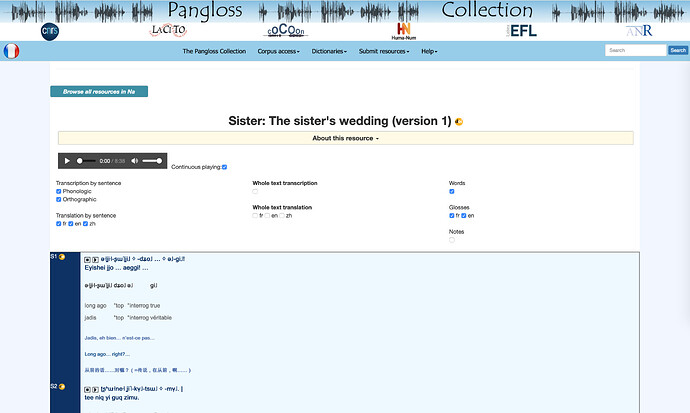I think my favorite is Pangloss, because it makes interlinear data interactive. For instance, Alex Milchaud’s corpus of Na, one of the many many subfamilies of Tibeto-Burman, has a nice interface with a lot of options for configuration. Here, for instance, is a text called The sister’s wedding:
https://pangloss.cnrs.fr/corpus/show_text_en.php?id=cocoon-3dd9341b-647a-33d3-b0fd-2b0ab0e7f638&idref=cocoon-46ae2130-95ad-342d-9606-ef3d47594bee
It would be interesting to hear what others think about archival interfaces, and not just text interfaces like this one: also corpus overview interfaces, interfaces that have scanned images of manuscripts, etc.
Let’s remember to be positive, the people who make these things are our friends and allies! 
1 Like
Oh yes, pangloss is lovely! The Ainu online corpus from ninjal (https://ainucorpus.ninjal.ac.jp/corpus/en/) is very nice too, very clear to read. For collections (but not display of actual docs) I quite like Paradisec’s display. It’s complicated but it’s pretty intuitive to find what’s there.
2 Likes
Wow, the Ainu corpus is very cool, had never seen that. It’s interesting to hear Ainu spoken.
Paradisec has an amazing amount of content… I did have to learn to pay attention to the “clear” button, as search terms persist by default (which is actually useful once you get used to it).
1 Like
